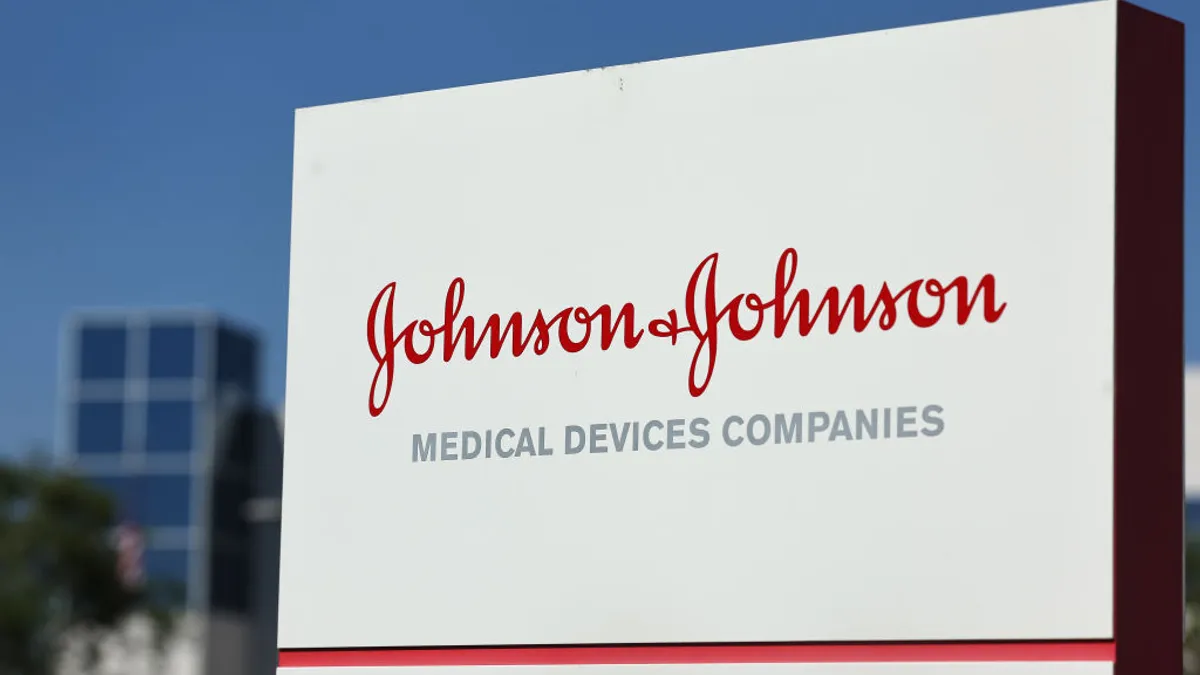Digital health funding has fallen significantly since the sector’s pandemic-era boom, creating a new normal for investment in the burgeoning sector.
Some companies closed their doors last year, and IPOs remain frozen after a swath of companies went public in 2021.
So, what’s ahead for the digital health sector this year? Healthcare Dive sat down with three digital health investors to discuss the investment environment in 2024, the landscape for M&A and when the public markets could open up for digital health.
This is part one of a three-part Q&A series with digital health investors that will publish weekly on Fridays, starting with Sunny Kumar, partner at early-stage digital health venture capital firm GSR Ventures.
This interview has been edited for clarity and length.
HEALTHCARE DIVE: We’ve seen digital health funding decline over the past year. How do you characterize the funding environment in 2023, and how do you think it will evolve next year?
SUNNY KUMAR: The way we would characterize this is a normalization. Because if you look at what's happened over a longer time horizon — even going back as far as 2015 — there was a steep increase over that time period, peaking really in 2021.
And while that's great for many reasons — that fuels a tremendous amount of innovation — many folks, myself included, would say that might have been a little bit too fast for what an industry as nascent as digital health can handle. And what we're seeing now — in the second half of 2022, 2023 and likely to some degree in 2024 — is a relatively healthy pullback, or normalization, as we go back to say, what should the amount of investment be to sustainably grow startups and companies in this space?
I can't tell you definitively that number should be $12.3 billion, or something like that. But we're seeing that number is likely to be between $10 and $15 billion. And once we hit that number, we'll probably get back to a more sustainable level of growth.
With less funding available, M&A is likely to rise. Do you see that happening now? What sectors do you think are ripe for consolidation?
I think that's something that a lot of folks speculated would happen, and certainly you saw some of this happen. Interestingly, we have not yet seen the big waves of M&A that everyone was predicting over the last six or 12 months at least.
So while M&A may have gone up, there hasn't been a huge surge that you might have anticipated. I think there are a couple of different factors for that. One is that startups as of yet have not fully run out of cash. I think cash is starting to run low, but every company, every board strongly encouraged their companies to really adjust their operating plans, their cash burn, probably as early as late 2021, and certainly in 2022, to account for the fact that cash would be more difficult to come by, and that has allowed many companies to extend their runway. Now, of course, that may not work forever. And many companies are now coming back to market. Some of them will be able to raise, some of them won't be. And as a result, you may start seeing M&A become more and more prevalent in the coming months.
The flip side of that is that M&A still has to be done for a purpose. Now, some of that will be because larger companies will see attractive assets at attractive prices, and they'll go ahead and purchase those companies. But if you have two companies, both of whom are relatively low on cash, both of whom are having trouble fundraising, it may not behoove one or the other company to acquire the other, which may be a reason why we're not seeing as much M&A as you would in a different environment.
My takeaway is that even though M&A has not seen the amount of increase that we would have anticipated, that will potentially and likely step up over the next 12 or 18 months, but may not be the massive increase that was initially proposed 12 months ago.
IPOs are also at a standstill. Do you think that will change soon? What could push more established digital health companies to go public?
I think it'll be a little while longer before you see some of the digital health IPOs. One of the big drivers for IPOs during peak COVID was that the multiples became very favorable for health tech in general.
The challenge for many of the digital health companies is what type of multiple in the public markets will sustain a healthy and attractive IPO. And I think that's going to be a big question for health tech for quite some time.
We’ve also seen some digital health companies shut down this year, like Pear Therapeutics, Olive and Babylon. Do you think that’s a trend that will continue?
There are two ways that I would answer that. I think it's really unfortunate that there are some companies out there that truly did not live up to the promise, and there are a variety of different reasons for that. Some were maybe just a little bit early or just didn't have the right go-to-market or just couldn't get the right set of approvals or alignment or incentive structure.
I would put the prescription digital therapeutics kind of in that box. I actually personally think that there's a lot of value to prescription digital therapeutics, and it's really unfortunate that these companies just couldn't quite get everything aligned to break out. I think the evidence came out that these companies actually do make a difference, but they just couldn't get the payment structure right.
Then there are companies which — I don't know if I would use the F word, or fraud — but there was probably some concern that they were overstating what they could do. And as that became more and more apparent, they started losing customers and ended up not really being able to deliver on their promise.
I do think going forward, we will increasingly see emphasis on companies that not only deliver a very strong value proposition, but increasingly have to do that sooner, meaning within a really tight timeframe. So there's no longer going to be an opportunity to purchase a solution and then have two years, three years to deliver that ROI. You're going to have to do that in six months, 12 months at most.
And there's going to be an increasing amount of pressure to really validate the technology. We do this really well in biotech, in drug development. We've done this less well in healthcare tech. I think that that bar is going to be raised even more.























